What is a housing emergency?
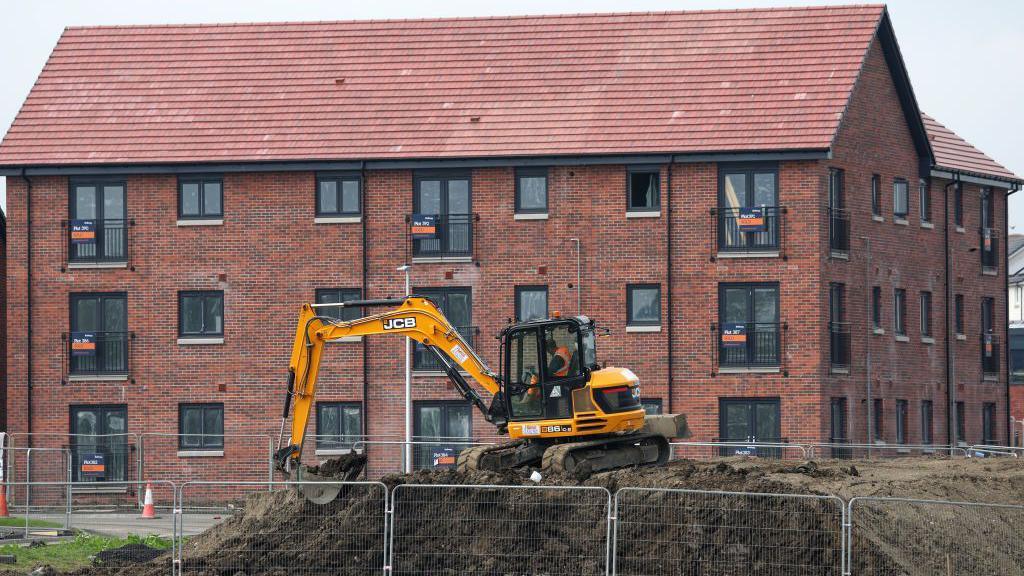
- Published
A "housing emergency" has been declared by the Scottish government.
BBC Scotland News examines the key questions and looks at what is happening across the country.
What is it and what are the implications?
A housing emergency is a declaration by the Scottish government formally recognising the problems with the country's housing system.
Ministers are calling for the reversal of cuts to Holyrood's capital budget, which is set by Westminster.
There are no automatic changes as a result of the declaration, so this alone will do nothing to improve the situation.
But campaigners hope that acknowledging the problem will create an imperative on politicians to act.
What's wrong with housing in Scotland?
In summary, there is a shortage of affordable, quality housing.
But the reasons for the shortage are complex, and vary across the country.
In general, there is a shortage of social housing, private rents are rising, and mortgages have become more expensive.
This means higher costs for first time buyers and for those reaching the end of a fixed term and looking to re-finance with a new loan.
What practical difference will the housing emergency make, and why now?
Scottish Labour asked MSPs to vote to declare a housing emergency last year but the SNP voted against it.
After the collapse of the SNP's power-sharing deal with the Greens last month First Minister John Swinney's government faced defeat in the new vote.
However the SNP changed its position and conceded there was a housing emergency.
It blamed UK government austerity and Brexit.
But UK ministers maintain that the Scottish government receives about 25% more funding per person than other parts of the UK.
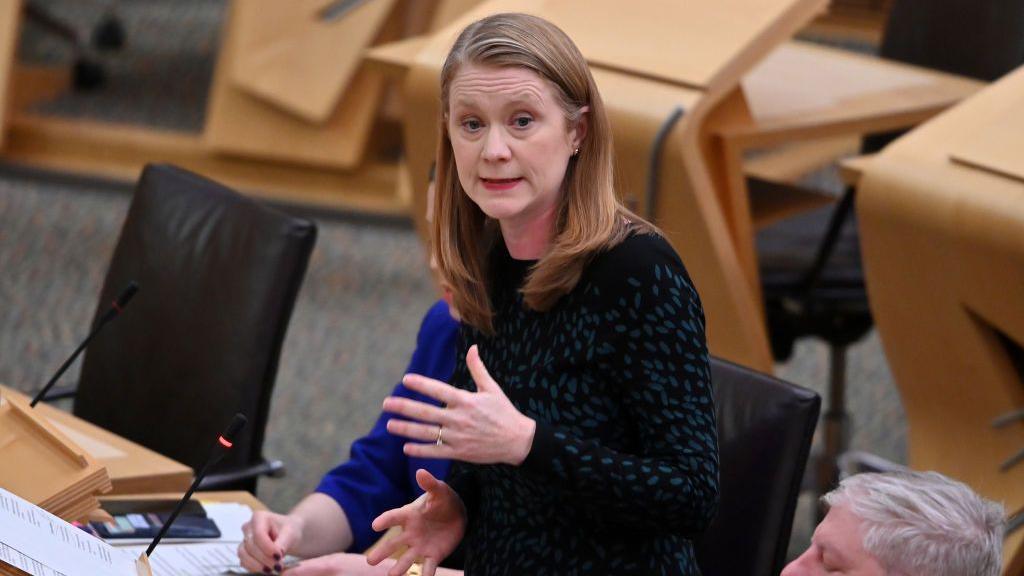
Shirley-Anne Sommerville declared a housing emergency
Earlier this year, the Scottish government cut the affordable housing budget by £200m, around 26% from 2023-24.
Last month the government announced an £80m increase to the same budget over two years. This will result in a cut of £163m, or 22% in real terms, from 2023-24.
The Scottish government has declared an emergency before.
In 2019 then-First Minister Nicola Sturgeon declared a climate emergency.
She vowed that the Scottish government would "live up to [its] responsibility to tackle" climate change.
Last month, the Scottish government scrapped its annual and interim targets for cutting greenhouse gas emissions.
They will be replaced with a system measuring emissions every five years.
What's the scale of the problem?
According to analysis by Shelter Scotland almost 10,000 children are "trapped" in temporary accommodation.
The charity said this is a record high and has risen 138% since 2014.
It also found:
There has been a 10% increase in households becoming homeless compared to last year.
Across the country, council homelessness services are in "systemic failure", which means demands on local homelessness services exceed their capacity to deliver.
And there has been a "significant slowdown" in the building of new social housing.
Shelter also warned private rents continue to rise, despite emergency legislation.
Why are homelessness numbers rising?
The Scottish government attributes the increases in homelessness to "the on-going impact of Covid... and the cost of living crisis".
Most of those who are classified as homeless are not rough sleepers.
According to the latest data from the Scottish government, external, 7% of households reported sleeping rough in the three months before their homeless application.
The majority of those who are homeless are residing in temporary accommodation provided by the council while their applications are processed and suitable homes are found.
Why is there a social housing shortage?
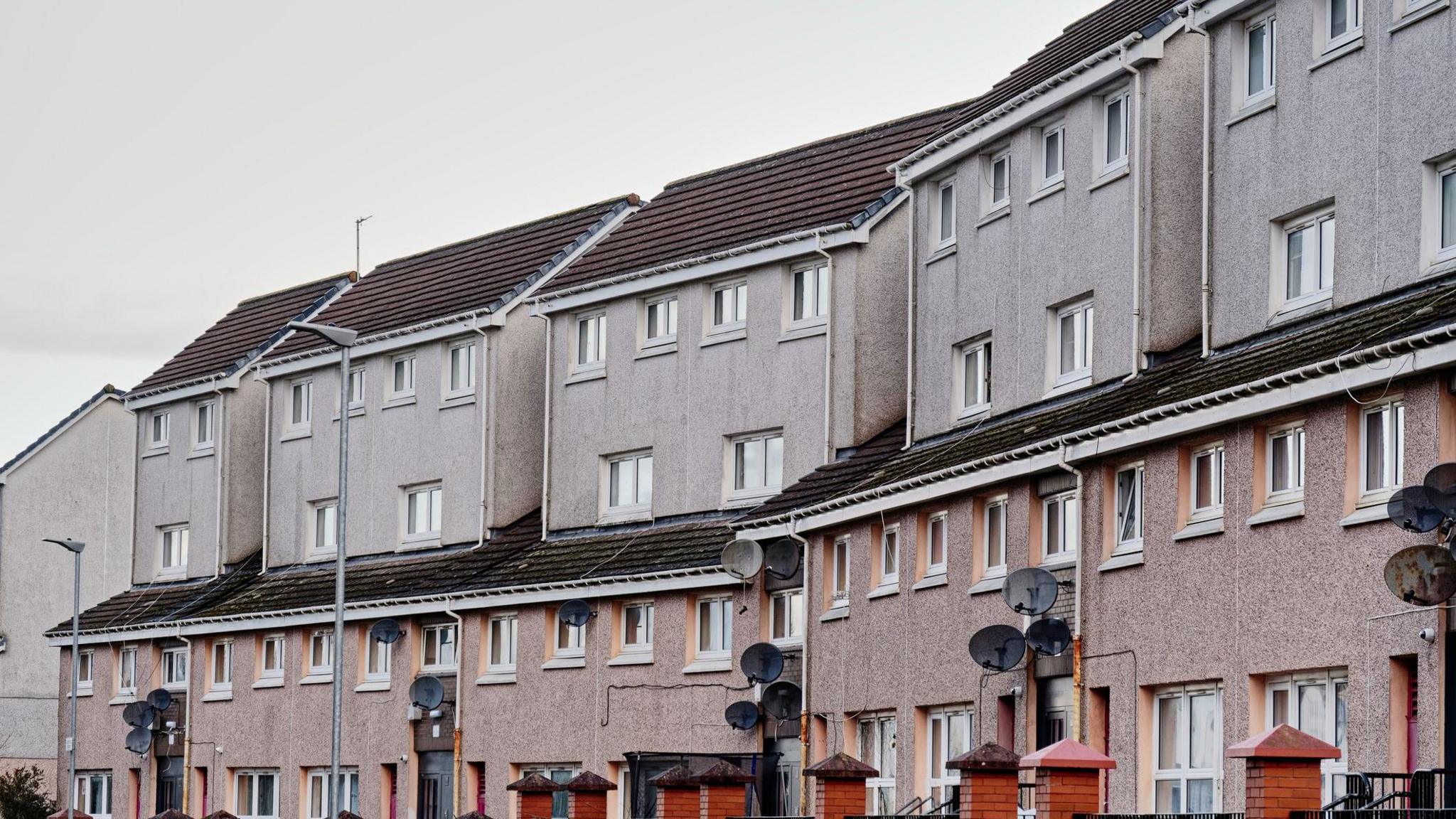
In the early 1980s, 51% of Scottish people were living in council homes according to Shelter.
When Margaret Thatcher was prime minister, the Right to Buy legislation gave council tenants the opportunity to purchase their property at a discounted rate.
About one in three took up the offer - taking a big chunk of social homes out of the council's stock.
The charity says this led to a reduction in the number of homes available but also a reduction in the quality as the most desirable homes were snapped up first.
Right to Buy is one factor in the current shortage of social housing, but Shelter also points to a lack of investment in building new social housing as another crucial factor.
Now social housing - where the property is owned by either a council or housing association and leased to a tenant, external - makes up less than a quarter of homes.
Why have private rents increased?
The average monthly rent in Scotland is now £947.
According to the Office for National Statistics (ONS), external, it increased by 10.5% in Scotland in the 12 months to March. This was the highest rise in the UK nations.
That is despite a 3% cap the Scottish government imposed on private rent increases earlier this year. However this freeze ended in March.
Research published by data-gathering website Statista, external suggested landlords were upping their prices due to the increased costs of running a rental property.
In a survey of almost 1,000 landlords, carried out towards the end of last year, more than half (59%) said they were trying to "align with local market rents".
Why is it getting more expensive to have your own home?
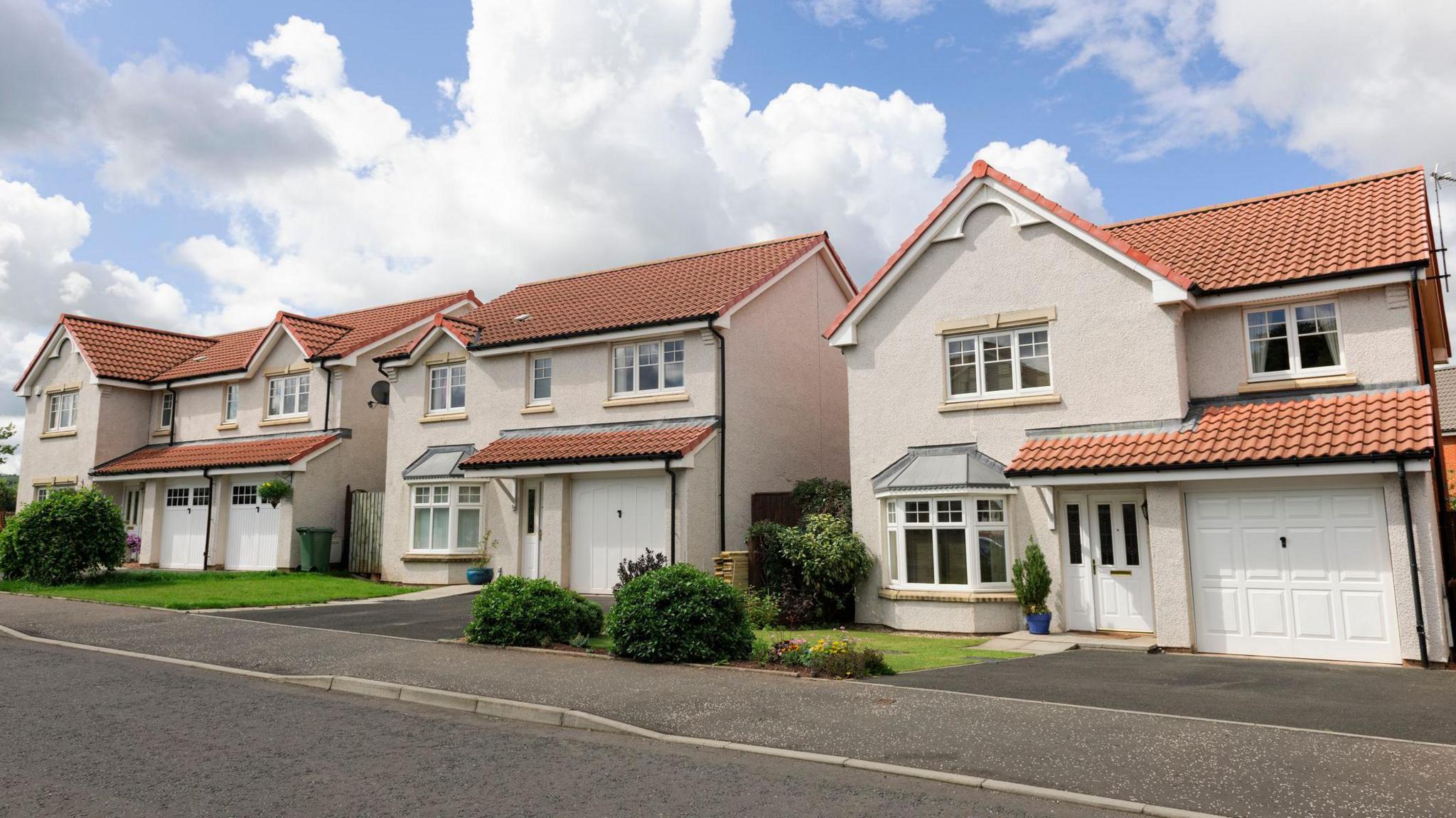
For those who have a mortgage on a property, costs have also shot up.
Over the last year, mortgage interest rates have increased steeply following years of historic lows.
Higher interest rates mean higher mortgage payments, and experts warn more homeowners are at risk of falling into debt or even losing their homes.
For first time buyers, getting on the property ladder can be a challenge.
While you can get some mortgages with a deposit as low as 5%, the average last year was 15%.
The average house price in Scotland, external is currently more than £190,000.
For a first time buyer, the average price paid was £135,000, according to property portal Zoopla, external.
Where else have housing emergencies been declared?
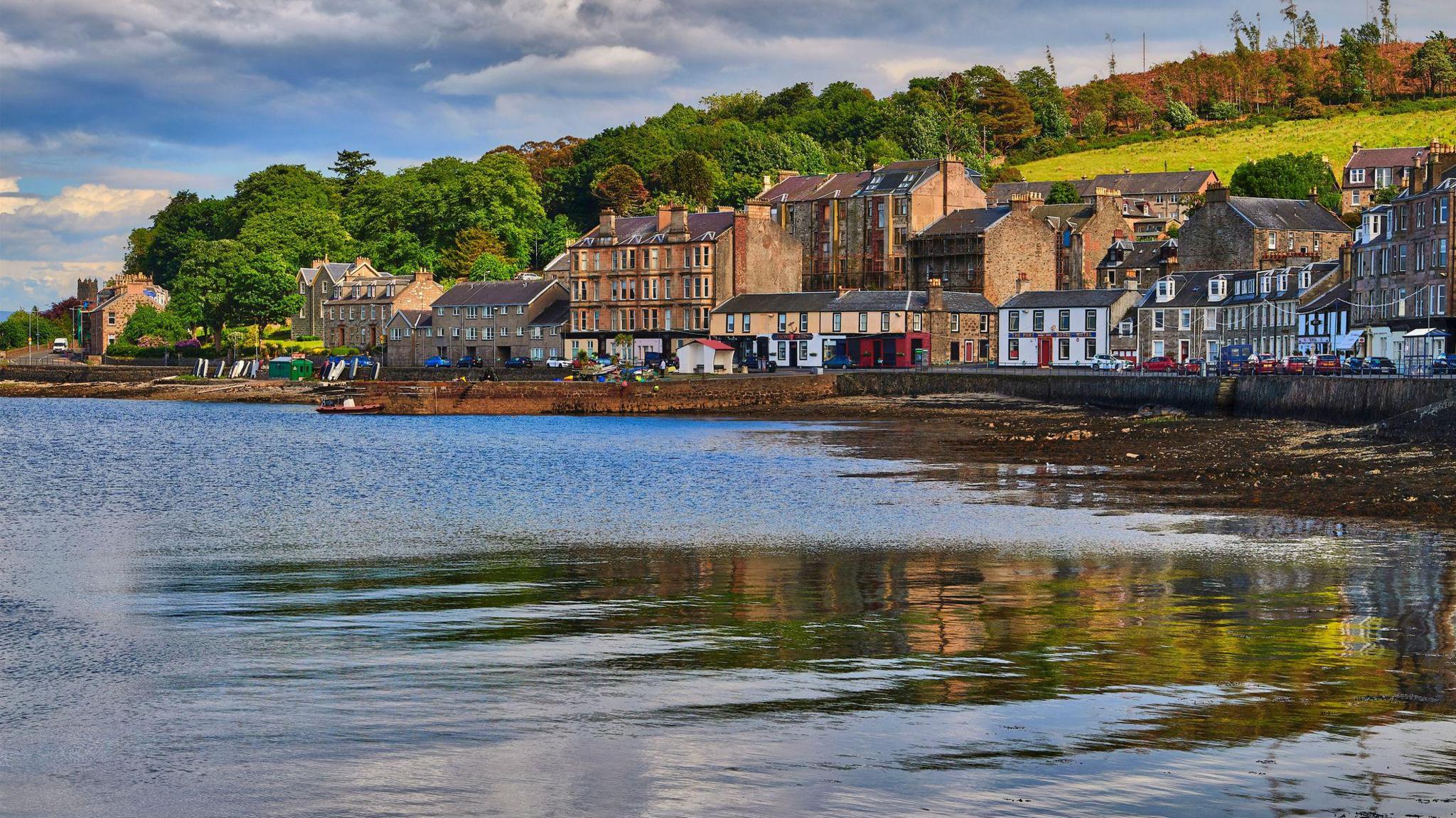
Five of Scotland's 32 councils have already declared housing emergencies in their patches.
In Scotland, local authorities have a legal duty to help people who are homeless or at risk of becoming homeless.
That means they have to provide advice on homelessness and how to prevent it, and offer accommodation - either temporary or permanent.
Argyll and Bute, Edinburgh and Glasgow city councils, Fife and West Dunbartonshire have already made the declaration.
The councils cited issues ranging from pressure on homelessness services, rising property prices and high levels of temporary accommodation.
The declaration was intended as a signal to government that the current situation is not working and there needs to be intervention.
What's happening around the country?
In Argyll and Bute, the council said there had been a rise in homelessness as well as housing choices decreasing, external.
The council said that property prices and private rents had been increasing, while local wages struggled to keep pace with inflation.
Holiday homes have also been a problem, with the west coast being an attractive option for second homes and short-term lets.
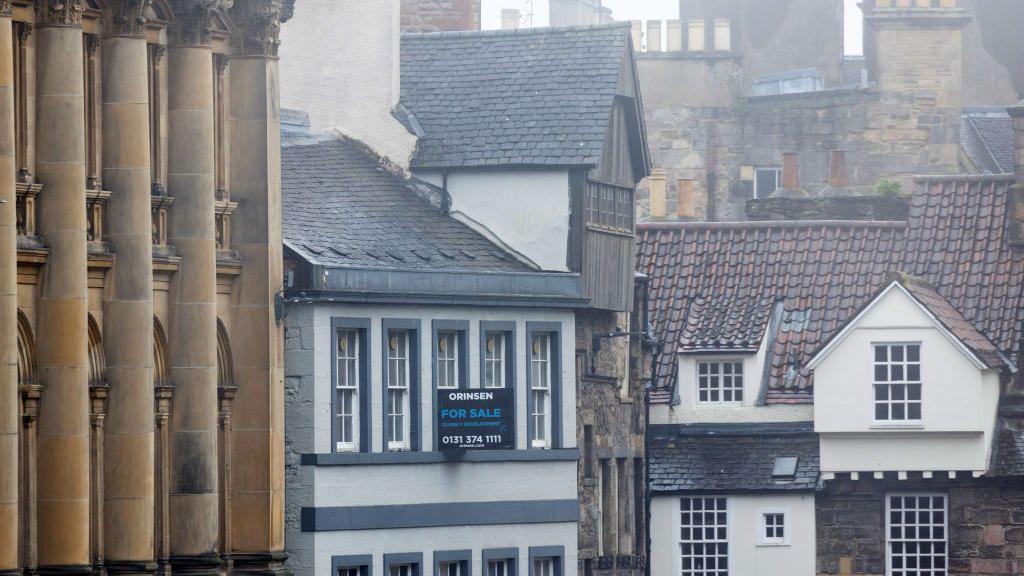
Scotland's capital city's popularity with students and tourists has made it an attractive place to stay with short-term lets decreasing places available to residents.
Edinburgh City Council has said it will be unable to build any new affordable homes, external this year.
Aberdeen city council has cited structural problems in some of their social homes, down to the presence of RAAC, increasing pressure on their accommodation supply.